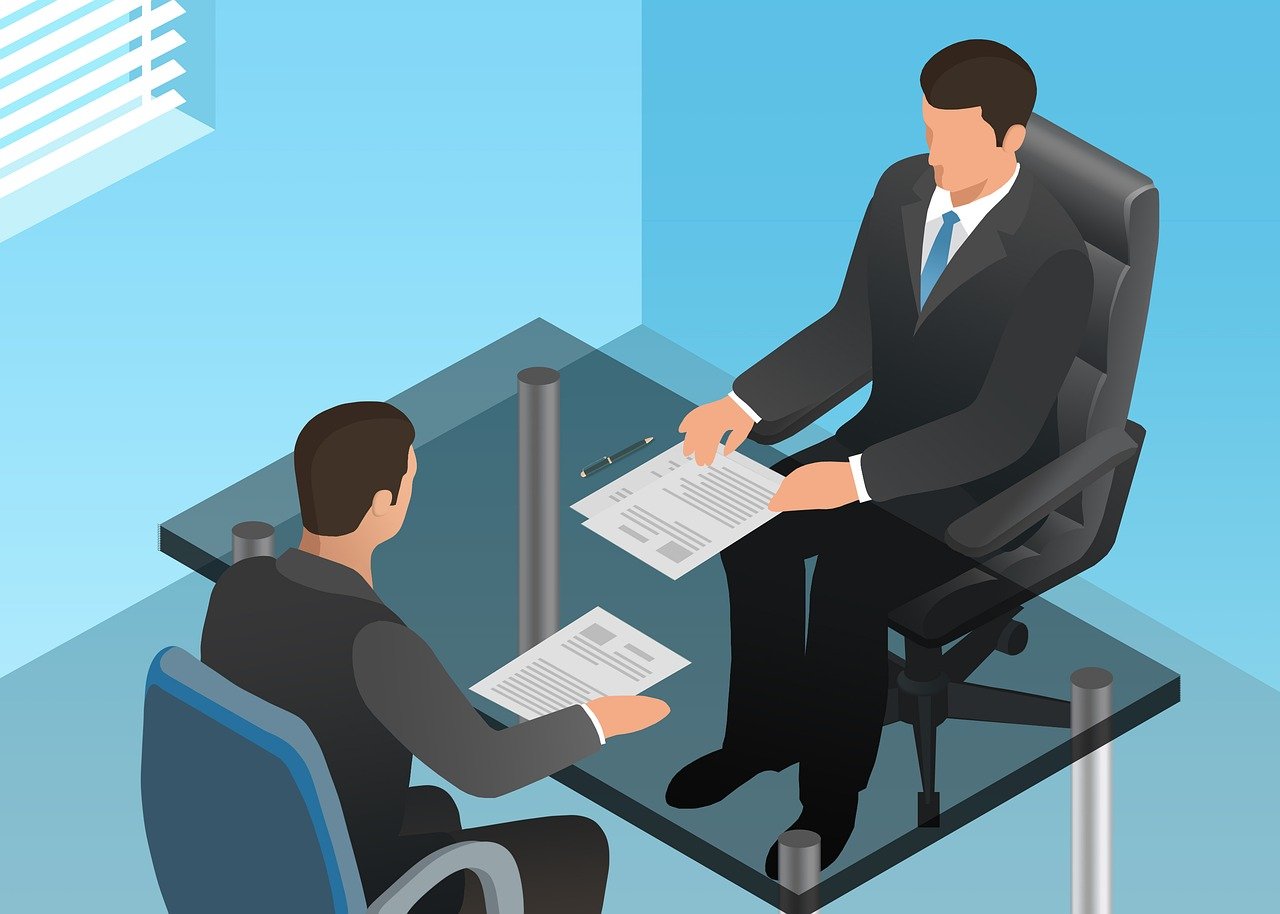
Introduction
Navigating the job market can be a daunting task, especially when it comes to the interview process. Whether you’re a recent graduate or a seasoned professional, interviews are a critical step in securing your next role. They offer a unique opportunity to showcase your skills, experience, and personality to potential employers. However, the pressure to perform well can often lead to anxiety and uncertainty.
This comprehensive guide aims to demystify the interview process by providing you with the top interview questions you are likely to encounter and offering strategic advice on how to answer them effectively. By understanding what interviewers are looking for and preparing thoughtful responses, you can approach your next interview with confidence and poise.
In the following sections, we will delve into various types of interview questions, from the most common to the more challenging ones, and provide you with actionable tips to help you stand out as the ideal candidate. Whether you’re preparing for a phone interview, a video interview, or an in-person meeting, this guide will equip you with the knowledge and tools you need to succeed.
Understanding the Interview Process
Initial Application and Screening
The interview process typically begins with the initial application and screening phase. During this stage, candidates submit their resumes, cover letters, and any other required documents. Recruiters or hiring managers then review these materials to determine if the candidate meets the basic qualifications for the position. This phase may also include an initial phone or video screening to further assess the candidate’s fit for the role.
Phone or Video Interview
If the candidate passes the initial screening, they are often invited to participate in a phone or video interview. This interview is usually conducted by a recruiter or HR representative and focuses on verifying the information provided in the application, discussing the candidate’s background, and assessing their communication skills. This stage helps narrow down the pool of candidates before moving on to more in-depth interviews.
In-Person or Virtual Interview
The next step is typically an in-person or virtual interview with the hiring manager and possibly other team members. This interview is more comprehensive and may include behavioral and technical questions to evaluate the candidate’s skills, experience, and cultural fit. Candidates should be prepared to discuss their past work experiences, problem-solving abilities, and how they handle various work situations.
Technical or Skills Assessment
For roles that require specific technical skills, candidates may be asked to complete a technical or skills assessment. This could be a coding test, a writing sample, a design project, or any other task relevant to the job. The purpose of this assessment is to gauge the candidate’s proficiency in the required skills and their ability to perform tasks that are essential to the role.
Panel Interview
Some companies conduct panel interviews, where the candidate meets with multiple interviewers at once. This format allows different team members to ask questions and evaluate the candidate from various perspectives. Panel interviews can be more challenging due to the number of interviewers, but they provide a well-rounded view of the candidate’s capabilities and fit for the team.
Final Interview
The final interview is often with a senior executive or a key decision-maker within the company. This interview may focus on the candidate’s long-term career goals, alignment with the company’s mission and values, and their potential for growth within the organization. It is also an opportunity for the candidate to ask high-level questions about the company’s strategy and vision.
Reference Checks
Before making a job offer, employers typically conduct reference checks to verify the candidate’s employment history, skills, and performance. Candidates should provide references who can speak to their professional abilities and character. Positive references can reinforce the candidate’s suitability for the role and help finalize the hiring decision.
Job Offer
If the candidate successfully navigates all stages of the interview process, they may receive a job offer. The offer will include details about the position, salary, benefits, and other terms of employment. Candidates should review the offer carefully and may negotiate certain aspects before accepting. Once the offer is accepted, the candidate transitions to the onboarding process and begins their new role.
Common Types of Interview Questions
Behavioral Questions
Behavioral questions are designed to assess how you have handled various situations in the past. These questions often start with phrases like “Tell me about a time when…” or “Give an example of…”. The idea is that past behavior is a good predictor of future performance.
How to Answer
Use the STAR method (Situation, Task, Action, Result) to structure your responses. Describe the situation you were in, the task you needed to accomplish, the action you took, and the result of your actions.
Situational Questions
Situational questions are hypothetical and ask how you would handle a specific situation. These questions are designed to assess your problem-solving and decision-making skills.
How to Answer
Think through the scenario and provide a detailed response that outlines your thought process. Explain the steps you would take to address the situation and why you believe those steps would be effective.
Technical Questions
Technical questions are specific to the job you are applying for and test your knowledge and expertise in that area. These questions can range from coding problems for software developers to financial modeling for finance roles.
How to Answer
Prepare by reviewing the key skills and knowledge areas relevant to the job. Practice solving problems or answering questions that are commonly asked in your field. Be ready to explain your thought process and reasoning.
Competency-Based Questions
Competency-based questions are similar to behavioral questions but focus on specific skills or competencies required for the job. These questions aim to determine if you possess the necessary skills to perform the job effectively.
How to Answer
Identify the key competencies required for the role and prepare examples from your past experience that demonstrate these skills. Use the STAR method to structure your responses.
Opinion-Based Questions
Opinion-based questions seek to understand your viewpoints, values, and attitudes. These questions can cover a wide range of topics, from your thoughts on industry trends to your approach to teamwork.
How to Answer
Be honest and thoughtful in your responses. Provide well-reasoned answers that reflect your genuine opinions and values. Support your viewpoints with examples or experiences when possible.
Hypothetical Questions
Hypothetical questions are similar to situational questions but are often more abstract. They are designed to assess your critical thinking and creativity.
How to Answer
Take a moment to think through the hypothetical scenario. Provide a structured response that outlines your approach to solving the problem or addressing the situation. Highlight your ability to think creatively and critically.
Case Study Questions
Case study questions are commonly used in consulting and finance interviews. These questions present a business problem and ask you to analyze the situation and propose a solution.
How to Answer
Familiarize yourself with common case study frameworks and practice solving case studies. Break down the problem into smaller parts, analyze each part, and provide a logical and structured solution. Be prepared to explain your reasoning and thought process.
Personal Questions
Personal questions aim to get to know you better as an individual. These questions can cover your background, interests, strengths, and weaknesses.
How to Answer
Be authentic and provide honest answers. Highlight aspects of your background and experiences that are relevant to the job. When discussing strengths and weaknesses, focus on those that are pertinent to the role and demonstrate self-awareness and a willingness to improve.
Motivational Questions
Motivational questions seek to understand what drives you and why you are interested in the role and the company. These questions can include “Why do you want to work here?” or “What motivates you?”
How to Answer
Research the company and the role thoroughly. Provide specific reasons for your interest in the job and the organization. Highlight how your values and career goals align with the company’s mission and culture.
Behavioral Questions and How to Tackle Them
Understanding Behavioral Questions
Behavioral questions are designed to assess how you’ve handled various situations in the past, which can be indicative of how you’ll perform in the future. These questions often start with phrases like “Tell me about a time when…” or “Give an example of…”. Employers use them to gauge your problem-solving skills, teamwork, leadership, and adaptability.
The STAR Method
The STAR method is a structured approach to answering behavioral questions. It stands for Situation, Task, Action, and Result. This method helps you provide a clear and concise response.
Situation
Describe the context within which you performed a task or faced a challenge at work. Be specific about the situation to give the interviewer a clear understanding of the scenario.
Task
Explain the actual task or challenge that was involved. What was your responsibility in that situation? This helps to set the stage for your actions and the results that followed.
Action
Detail the specific actions you took to address the task or challenge. Focus on what you did, rather than what the team or group did. This is your opportunity to showcase your skills and competencies.
Result
Share the outcomes of your actions. What was the result of your efforts? Try to quantify your success with numbers or specific examples if possible. This demonstrates the impact of your actions.
Common Behavioral Questions and Sample Answers
Teamwork
Question: “Tell me about a time when you worked as part of a team to achieve a goal.”
Answer:
- Situation: “In my previous job, our team was tasked with launching a new product within a tight deadline.”
- Task: “My role was to coordinate between the marketing and development teams to ensure all aspects of the launch were aligned.”
- Action: “I organized regular meetings, created a shared project timeline, and facilitated communication between the teams.”
- Result: “We successfully launched the product on time, and it exceeded our sales targets by 20% in the first quarter.”
Problem-Solving
Question: “Describe a situation where you faced a significant problem at work and how you handled it.”
Answer:
- Situation: “At my last job, we encountered a major issue with our supply chain that threatened to delay our project.”
- Task: “I was responsible for finding a solution to avoid any delays.”
- Action: “I quickly identified alternative suppliers, negotiated terms, and coordinated with our logistics team to ensure a smooth transition.”
- Result: “We managed to keep the project on track, and the new suppliers even offered better rates, saving the company 15% on costs.”
Leadership
Question: “Can you give an example of a time when you had to lead a team through a difficult project?”
Answer:
- Situation: “During a critical phase of a project, our team leader left the company unexpectedly.”
- Task: “I had to step in and take over the leadership role to ensure the project stayed on course.”
- Action: “I reassigned tasks based on team members’ strengths, provided clear guidance, and maintained open communication to keep everyone motivated.”
- Result: “We completed the project ahead of schedule and received positive feedback from the client for our efficiency and teamwork.”
Tips for Answering Behavioral Questions
Be Specific
Provide detailed examples rather than general statements. Specificity helps the interviewer understand the context and your role in the situation.
Be Honest
Always be truthful in your responses. If you exaggerate or fabricate stories, it can be easily detected and harm your credibility.
Practice
Prepare and practice your answers to common behavioral questions. This will help you feel more confident and articulate during the interview.
Focus on Positivity
Even if the situation was challenging, focus on the positive outcomes and what you learned from the experience. This shows resilience and a growth mindset.
Tailor Your Answers
Customize your responses to align with the job description and the company’s values. This demonstrates that you understand the role and are a good fit for the organization.
Technical Questions: Preparation and Response Strategies
Understanding the Role Requirements
Before diving into preparation, it’s crucial to understand the technical requirements of the role you’re applying for. Review the job description thoroughly to identify the key technical skills and knowledge areas that are essential for the position. This will help you focus your preparation on the most relevant topics.
Researching Common Technical Questions
Research common technical questions related to your field. Websites like Glassdoor, LeetCode, and GitHub can provide insights into the types of questions that are frequently asked in technical interviews. Make a list of these questions and categorize them based on the skills they test, such as coding, system design, or problem-solving.
Practicing Coding Problems
For roles that require coding skills, practice is essential. Use platforms like LeetCode, HackerRank, and CodeSignal to solve coding problems. Start with easy problems and gradually move to more complex ones. Focus on understanding the underlying concepts and algorithms rather than just memorizing solutions.
Reviewing Core Concepts
Revisit the core concepts of your technical field. For software developers, this might include data structures, algorithms, object-oriented programming, and databases. For network engineers, it could involve networking protocols, subnetting, and network security. Ensure you have a strong grasp of these fundamentals.
Mock Interviews
Participate in mock interviews to simulate the real interview experience. You can do this with a friend, mentor, or through online platforms that offer mock interview services. Mock interviews help you get comfortable with the format and timing of technical questions and provide valuable feedback on your performance.
Explaining Your Thought Process
During the interview, clearly explain your thought process as you work through technical questions. Interviewers are often more interested in how you approach a problem than whether you get the correct answer. Break down the problem into smaller parts, discuss your assumptions, and outline your plan before diving into the solution.
Handling Unknown Questions
It’s common to encounter questions you don’t know the answer to. In such cases, stay calm and take a structured approach. Start by clarifying the question and any constraints. Then, discuss any related concepts or similar problems you have encountered. If you’re still unsure, explain how you would go about finding the solution, such as researching specific topics or consulting documentation.
Time Management
Manage your time effectively during the interview. If you get stuck on a question, it’s better to move on and come back to it later if time permits. Prioritize questions based on your strengths and the points they carry. Practice timed coding challenges to improve your ability to work under pressure.
Reviewing Your Work
If time allows, review your work before submitting it. Check for any syntax errors, logical mistakes, or edge cases you might have missed. A thorough review can help you catch and correct errors, demonstrating your attention to detail and commitment to delivering high-quality work.
Asking Clarifying Questions
Don’t hesitate to ask clarifying questions if you’re unsure about any aspect of the question. This shows that you are thorough and want to fully understand the problem before attempting to solve it. It can also provide additional information that might make the problem easier to tackle.
Continuous Learning
Technical fields are constantly evolving, so continuous learning is essential. Stay updated with the latest trends, tools, and technologies in your industry. Engage in online courses, attend workshops, and participate in professional communities to keep your skills sharp and relevant.
Situational Questions: Crafting Effective Answers
Understanding Situational Questions
Situational questions are designed to assess how you would handle specific work-related scenarios. These questions often start with phrases like “What would you do if…” or “How would you handle…”. Employers use them to gauge your problem-solving skills, decision-making abilities, and how you perform under pressure.
The STAR Method
The STAR method is a structured approach to answering situational questions. It stands for Situation, Task, Action, and Result. This method helps you provide a clear and concise response.
Situation
Describe the context within which you performed a task or faced a challenge at work. Be specific about the details to set the scene for your interviewer.
Task
Explain the actual task or challenge that was involved. What was required of you? What were the expectations or objectives?
Action
Detail the specific actions you took to address the task or challenge. Focus on what you did, rather than what the team or group did. Highlight your individual contributions.
Result
Share the outcomes of your actions. What was the result? How did it benefit the organization? Use quantifiable data if possible to demonstrate your success.
Common Situational Questions and Sample Answers
Handling a Difficult Customer
Question: “How would you handle a difficult customer?”
Answer:
- Situation: “In my previous role as a customer service representative, I encountered a customer who was extremely upset about a billing error.”
- Task: “My task was to resolve the issue to the customer’s satisfaction while adhering to company policies.”
- Action: “I listened to the customer’s concerns without interrupting, apologized for the inconvenience, and reviewed their billing history. I identified the error and corrected it immediately. I also offered a discount on their next bill as a goodwill gesture.”
- Result: “The customer appreciated the prompt resolution and the goodwill gesture, and they continued to be a loyal customer. My manager praised my handling of the situation, which contributed to a 10% increase in customer satisfaction scores that quarter.”
Managing a Tight Deadline
Question: “What would you do if you were given a tight deadline on a project?”
Answer:
- Situation: “While working as a project manager, I was once given a project with a very tight deadline due to an unexpected client request.”
- Task: “My task was to ensure the project was completed on time without compromising quality.”
- Action: “I immediately convened a team meeting to outline the new timeline and delegate tasks based on each team member’s strengths. I also set up daily check-ins to monitor progress and address any issues promptly.”
- Result: “We completed the project two days ahead of the deadline, and the client was extremely satisfied with the quality of the work. This led to additional business from the client and a commendation from senior management.”
Tips for Crafting Effective Answers
Be Specific
Provide detailed examples that clearly illustrate your skills and abilities. Avoid vague or general statements.
Stay Positive
Even if the situation was challenging, focus on the positive outcomes and what you learned from the experience.
Practice
Rehearse your answers to common situational questions. This will help you feel more confident and articulate during the actual interview.
Tailor Your Responses
Customize your answers to align with the job description and the company’s values. This shows that you have done your homework and are genuinely interested in the role.
Common Pitfalls to Avoid
Being Too Vague
Avoid giving answers that are too general or lack specific details. This can make it difficult for the interviewer to assess your capabilities.
Overemphasizing Team Efforts
While teamwork is important, make sure to highlight your individual contributions. The interviewer wants to know what you specifically did in the situation.
Neglecting the Result
Always include the outcome of your actions. This demonstrates the impact of your efforts and provides a complete picture of your problem-solving abilities.
Questions to Ask the Interviewer
Understanding the Role
Can you describe a typical day or week in this role?
This question helps you gain a clearer picture of what your daily responsibilities will be. It also shows the interviewer that you are interested in the specifics of the job and how you can contribute effectively.
What are the most immediate projects that need to be addressed?
By asking this, you demonstrate your eagerness to hit the ground running and prioritize tasks that are critical to the company’s success.
What are the key challenges someone in this role would face?
Understanding the challenges helps you assess whether you are well-suited for the role and allows you to discuss how your skills and experience can help overcome these obstacles.
Team and Company Culture
Can you tell me about the team I’ll be working with?
This question provides insight into the team dynamics and the types of people you will be collaborating with, which is crucial for your job satisfaction and performance.
How would you describe the company culture?
Understanding the company culture helps you determine if you will fit in and thrive within the organization. It also shows that you are considering how you will integrate into the company’s environment.
What are the opportunities for professional development?
This question indicates your interest in growing with the company and shows that you are looking for a long-term commitment. It also helps you understand the company’s investment in its employees.
Performance and Expectations
How is performance typically measured and reviewed?
Knowing how your performance will be evaluated helps you understand what is expected of you and how you can succeed in the role. It also shows that you are goal-oriented and focused on delivering results.
What are the most important qualities for someone to excel in this role?
This question allows you to tailor your responses and highlight your strengths that align with the qualities the company values. It also gives you a clearer understanding of what the company is looking for in a candidate.
What are the next steps in the interview process?
Asking about the next steps shows your enthusiasm for the role and helps you understand the timeline and what to expect moving forward.
Company’s Future and Strategy
What are the company’s goals for the next five years?
This question demonstrates your interest in the company’s long-term vision and how you can contribute to its success. It also helps you assess the company’s stability and growth potential.
How does this role contribute to the company’s overall goals?
Understanding how your role fits into the bigger picture shows that you are thinking strategically and are interested in making a meaningful impact within the organization.
Can you tell me about any new products or services the company is developing?
This question shows that you are forward-thinking and interested in the company’s innovation and growth. It also provides insight into the company’s direction and priorities.
Work-Life Balance
What is the company’s policy on remote work or flexible hours?
Understanding the company’s stance on work-life balance helps you determine if the role aligns with your personal needs and preferences. It also shows that you are considering how the job will fit into your life.
How does the company support employees in maintaining a healthy work-life balance?
This question indicates that you value a healthy work-life balance and are looking for a company that supports its employees in achieving it. It also provides insight into the company’s culture and values.
Company’s Challenges and Opportunities
What are the biggest challenges the company is currently facing?
Understanding the company’s challenges helps you assess the stability and potential risks associated with the role. It also allows you to discuss how your skills and experience can help address these challenges.
What opportunities for growth do you see for the company in the near future?
This question shows that you are interested in the company’s future and are thinking about how you can contribute to its success. It also provides insight into the company’s strategic direction and potential for growth.
Conclusion and Final Tips
Stay Calm and Confident
Maintaining a calm and confident demeanor during an interview is crucial. Practice deep breathing techniques or mindfulness exercises to help manage anxiety. Confidence can be built through thorough preparation and practice. Remember, the interview is as much about you assessing the company as it is about them assessing you. Reach out to Exec Capital.
Research the Company
Understanding the company’s mission, values, and culture can give you a significant edge. Tailor your answers to reflect how your skills and experiences align with the company’s goals. This demonstrates genuine interest and shows that you’ve done your homework.
Practice Common Questions
Rehearse answers to common interview questions, but avoid sounding rehearsed. Practice with a friend or in front of a mirror to refine your responses. This will help you articulate your thoughts more clearly and confidently during the actual interview.
Prepare Your Own Questions
Having thoughtful questions prepared for the interviewer shows your interest in the role and the company. It also provides an opportunity to determine if the company is the right fit for you. Ask about the company culture, team dynamics, and growth opportunities.
Dress Appropriately
First impressions matter. Dress in a manner that is appropriate for the company’s culture. When in doubt, it’s better to be slightly overdressed than underdressed. Ensure your attire is clean, neat, and professional.
Follow Up
Send a thank-you email within 24 hours of the interview. Express your appreciation for the opportunity and reiterate your interest in the position. This small gesture can leave a lasting positive impression.
Be Honest
Honesty is key during an interview. If you don’t know the answer to a question, it’s better to admit it rather than fabricate an answer. Employers value integrity and the willingness to learn.
Highlight Your Unique Value
Identify what sets you apart from other candidates and emphasize these unique qualities. Whether it’s a specific skill, experience, or perspective, make sure to highlight how you can bring value to the company.
Stay Positive
Maintain a positive attitude throughout the interview process. Even if you encounter difficult questions or topics, respond with a positive and constructive mindset. Positivity can be contagious and leave a favorable impression on your interviewer.
Reflect and Improve
After each interview, take some time to reflect on what went well and what could be improved. Use this reflection to better prepare for future interviews. Continuous improvement will increase your confidence and performance over time. Exec Capital are leading C-Suite Recruiter.




